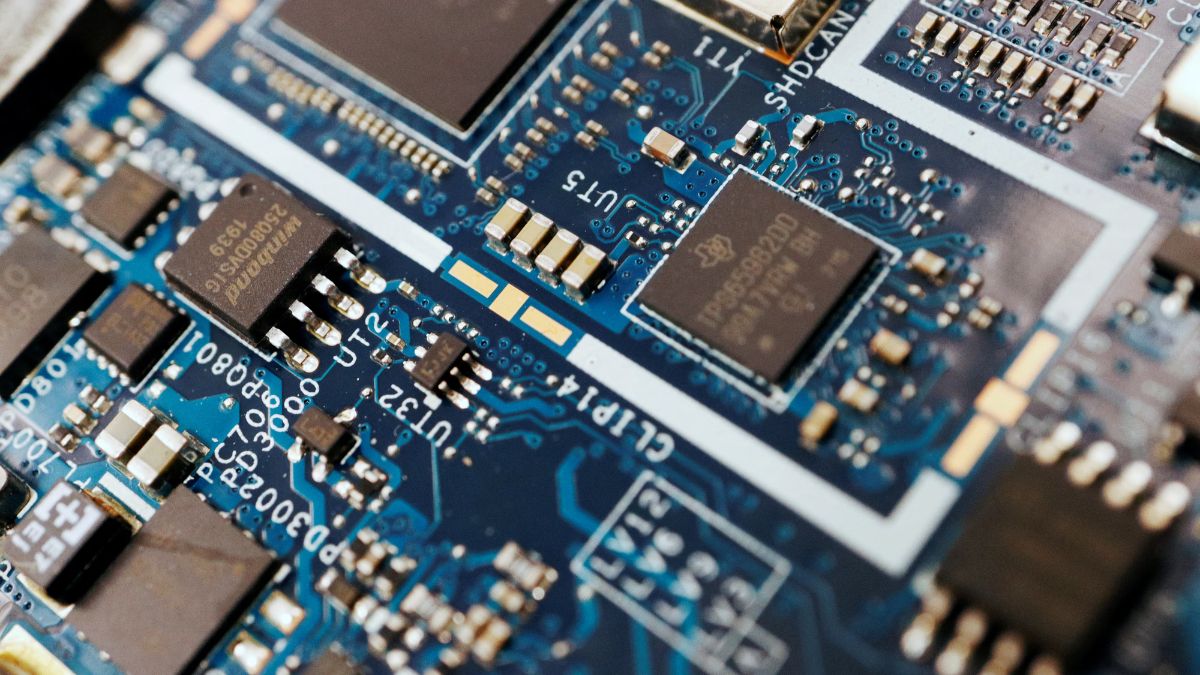Necessary Always Active
Necessary cookies are required to enable the basic features of this site, such as providing secure log-in or adjusting your consent preferences. These cookies do not store any personally identifiable data.
|
||||||
|
||||||
|
||||||
|

President Donald Trump has said the US will impose a 100% tariff on imported chips. According to Reuters, Trump’s 100% tariff on imported chips will not affect companies that are already manufacturing semiconductors in the US or have committed to shift production to the country.
Trump’s 100% tariff comment on chips came just as sweeping duties of 10% to 50% on imports from over 90 countries took effect. Separately, the US President imposed additional 25% tariffs on India, effectively pushing the country’s duty to 50%.
The latest import duty on semiconductors is part of President Trump’s effort to bring chip production to the US. He announced the semiconductor import tariffs while disclosing that Apple will be making an additional $100 billion investment in the US. The US President warned chip makers against going back on their pledge to set up factories in America.
“If, for some reason, you say you’re building and you don’t build, then we go back and we add it up, it accumulates, and we charge you at a later date, you have to pay, and that’s a guarantee,“ the President added.
Trump’s remarks do not constitute a formal tariff announcement by the US government. Semiconductors and pharmaceutical imports have been the subject of a Section 232 investigation 2025 in the US since April. Results of the investigation are expected by mid-August.
The proposed 100% tariff on chips triggered a flurry of reactions from governments and businesses across the world. In the Philippines, the semiconductor industry said the tariffs would be devastating.
Malaysia struck a similar tone with the Trade Minister Tengku Zafrul Aziz warning that the country risks “losing a major market in the United States if its products become less competitive as a result of the imposition of these tariffs.“
Malaysia is one of the largest chip testing and packaging players in the world. South Korea said major chip manufacturers SK Hynix and Samsung Electronics will not be affected by the duties.
The situation was similar in Taiwan where the National Development Council Minister Liu Chin-ching said that Taiwanese manufacturers have been setting up factories in the US in partnership with local manufacturers as a way of countering potential tariffs.
Contract chip manufacturer TSMC is expected to enjoy exemption as well after it announced a $100 billion plan to strengthen US chip manufacturing in March 2025. This means companies like NVIDIA whose chips are manufactured by TSMC will likely not face rising costs. As the US prepares to introduce chip tariffs, analysts say that only big, cash-rich chip makers that can afford to manufacture in the US will benefit.
It’s still unclear how firms and countries across the world will be affected by the proposed tariffs. Besides the exemptions on firms manufacturing in the US, many aspects of the potential duties remain unclear.
According to Bernstein analysts, most chips entering the US are already fitted in consumer products like computers, vehicles, and smartphones. Although its tariffs on such imports may be easy to manage, wider tariffs can be challenging to handle.
“What we don’t know with Trump’s comments on tariffs, is it just raw semiconductors? Are there going to be tariffs on end devices? Are you going to be looking at tariffs on components within end devices?,” Senior Semiconductor Analyst at Bernstein Stacy Rasgon asked.
Semiconductors are at the heart of the modern digital economy. Introduction of tariffs could have a huge impact on the industry whose global value currently stands at $600 billion. The US government is yet to reveal the details needed to determine the full impact of the semiconductor tariff policy.
“It’s still too early to pin down the impact of the tariffs on the semiconductor sector. The final rule is likely still being drafted and the technical details are far from clear at this point,” Research Director of Semiconductors at The Futurum Group Ray Wang said.